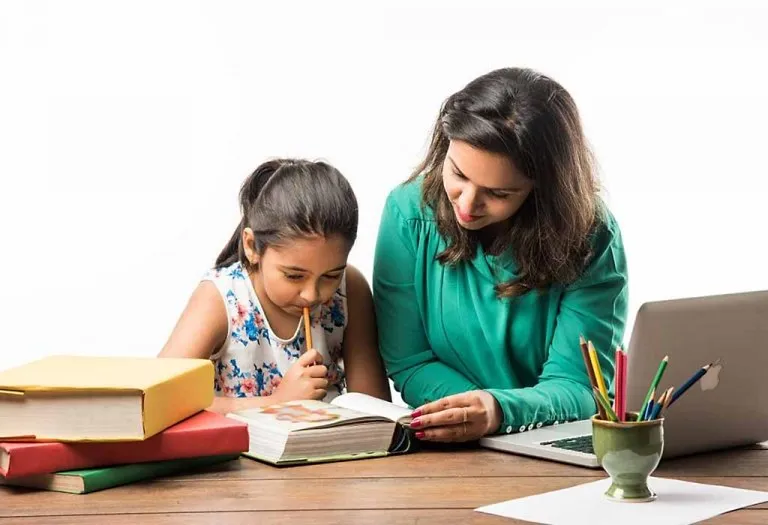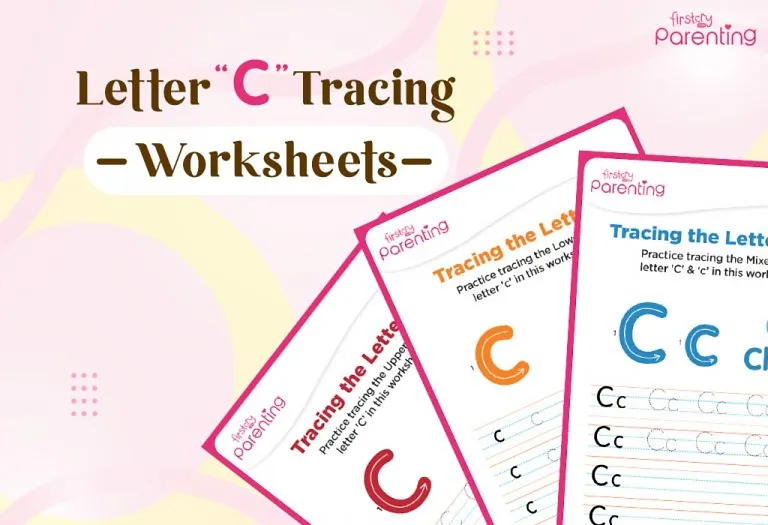3rd Grade Curriculum – Subjects, Activities, and Skills
Are you homeschooling your child, or want to further support your child’s education at home? Understanding what the right 3rd grade homeschool curriculum is, can help you prepare lessons that can stimulate further academic learning in your child.
Kids beginning the third grade have basic reading, writing, and math skills. In the third grade, they will learn to build upon these, and dive a little deeper into the individual topics. They will get introduced to abstract concepts as well. This is when your kids will have opinions of their own, and learn how to convey them using words and ideas.
While the curriculum differs across states, the skills to be taught are common, and will give an idea on what your homeschooled child should learn.
What Do Third Graders Learn?
Curriculum for third graders is centered around five main subjects – reading, writing, math, science, and social studies. The teaching curriculum in the third grade will help kids solidify their understanding of the basics that they’ve learned over the previous years. They’ll also be introduced to global topics and ideas, and move beyond their understanding of just the home and school.
Overview Of 3rd Grade Curriculum
If you’re preparing your homeschooled kid for the third grade, the information below may come in handy as you prepare your lessons at home.
1. Reading
Third grade is when your child will make the transition from learning to read to reading to learn. At the beginning of the year, your kid will ideally be able to read with relative fluency. He may also be able to correct his mistakes while reading and figure out words based on the context.
The third-grade curriculum will utilise these skills and introduce your child to non-fiction and chapter books. Your child will learn grammar, summarisation, and to get information from text.
Key Learnings/Observations
- Expand vocabulary and use new words in conversation
- Use of reference books to get meanings and information (dictionaries and thesauruses)
- Ability to read long chapters and books
- Capable of articulating the main point of the stories read
- Learning how to spell more complex words
2. Writing
Writing is an important step in learning how to convey the information your child has learned from all the subjects. Kids will learn to write extensively in cursive writing. A third-grade child will be able to summarise information and pen them down on paper using a slightly more sophisticated vocabulary.
Key Learnings/Observations
- Learn cursive writing and write in cursive regularly
- Write down detailed summaries of stories with a logical sequence of transpired events, plot, and endings
- Write long paragraphs and essays on simple topics
- Creative writing and penning down personal thoughts and opinions
3. Math
Math in third grade is directed towards enabling kids to utilise math in everyday life. The 3rd-grade math curriculum will focus on building up basic two and three-digit addition and subtraction skills taught in the second grade. New concepts like multiplication, division, fractions, basic geometry, and probability will also be introduced. By the end of the third grade, the goal is to make your child capable of doing mental math.
Key Learnings/Observations
- Make simple mental calculations
- Utilise math in real-life situations like adding up allowance money or making simple purchases
- Learn the concepts of multiplication, decimals, fractions, and divisions
- Multiply and divide double and triple-digit numbers using single-digit numbers
- Measure volume, weight, and height
- Interpret simple graphs and patterns and create charts
- Collecting and interpreting simple data
- Measuring area
- Learning how to add and subtract time in hours and minutes
- Understanding standard units of measure
4. Science
Grade 3 science is a good mix of conceptual science and hands-on activities and experiments. Your child will be introduced to natural science and the animal kingdom and habitats. A third grader will need to cultivate the skills of scientific investigation, experimentation, and observation using the lessons taught. Kids will understand and break down the complex model of the earth and learn about weather, rocks, minerals, water bodies and more.
In the 3rd-grade science curriculum, your child will also be introduced to subjects that are beyond what he is familiar with, such as space and the forces of nature. A hands-on approach using science kits is the best way to build your kid’s interest in the subject.
Key Learnings/Observations
- Learn about space, moon, sun, stars, and the solar system
- Learn about the natural habitats of various living organisms
- Be able to classify and categorise natural objects and life
- Get introduced to the scientific explanation behind light and sound
- Set up experiments and prove or disprove simple hypothesis
- Understand the forces of nature and how they happen
5. Social Studies
Third grade is when your child will learn about his country and the world around him. While the main focus of the social studies curriculum is on learning more about his own state, its economy, geography, trade, and unique aspects, he will also have an understanding of how the state relates to the rest of the country. Similarly, kids will begin to grasp the concept of their country and how it relates to the rest of the world. The history curriculum will revolve around the history of their state, country, and the world.
Your third grader will learn how to recognise countries on a map and heavily focus on improving map skills. Basic economy will also be a key point in a social studies grade 3 curriculum. Kids will begin to grasp the concept of supply and demand and how trade takes place across different states and channels.
Key Learnings/Observations
- Learn the names of all the states and their capitals
- Build map-reading skills and be able to identify countries using a map or a globe
- Understand the concept of trade and economy, especially in relation to their state
- Learn about the geography of their country and state
- Learn the unique features and qualities of their state
- Get introduced to the history of the world
6. Language Arts
By the end of the second year, many children are able to read more fluently than before and require less time to pause and sound out words to pronounce it fully. In their third year, they will begin to focus on building narrative and explanatory essays, decoding multi-syllabic words, recognising and reading grade-appropriate irregularly spelt words, and building cause-and-effect relationships using texts and pictures.
Your third-graders will be getting fluent in their language arts because of the school curriculum as well as their regular exposure to the world, where they will observe people and learn to mimic the dialect or a joke.
Key Learnings/Observations
- Improvement of nouns, pronouns, adjectives, verbs, and adverbs
- Learn how to write opinion essays using their imagination and thoughts
- Learn the use of commas and question marks
- Learn when to capitalise on titles
- Learn to clearly pronounce multi-syllabic words
Apart from these regular subjects, your third grader can also learn subjects and concepts that he enjoys and has an interest in. If you notice that your child loves history, tailor the curriculum to include interesting historical lessons.
Learning more about technology can also begin at the third-grade level. Your child will, no doubt, be familiar with a computer. You can teach him how to use a computer for research and learning. He can also learn how to use a keyboard efficiently. Always be sure to supervise your child’s computer time.
FAQs
1. What does a 3rd-grade curriculum focus on?
The third-grade curriculum generally focuses on building the foundation in reading, writing, mathematics, social studies, and science. Newer concepts like multiplication and division in math, multi-syllabic reading comprehension, narrative or opinion writing will help them refine their knowledge. In science and social studies, on the other hand, they’ll explore new and exciting topics like historical events, cultures, weather patterns, space, and the solar system.
2. Is the third-grade curriculum the same in every educational institution?
No, most third-grade curricula are not the same everywhere and vary with the country and state. Nonetheless, a majority of the foundational curriculum for 3rd graders will focus on reading and writing comprehension and mathematics. The depth of knowledge and content will vary significantly.
3. How can I help my third-grader child be efficient in their learning and activities?
Parents play a pivotal role in ensuring a child’s learning and engagement with their environment. To ensure your child stays efficient in their third grade, make sure you keep their learning consistent by sending them to school regularly. Ensure they complete their homework. When exams approach, you can help with studying and practising for tests. Besides education, they should also take part in extracurricular activities, such as music, dance, or sports, to tap their creative brain and figure out their interests. A positive and encouraging is another important aspect to ensure your child excels in their academic growth and builds confidence.
It is important to remember not to put too much information before your child and force him to accept it all immediately. This will only create an unpleasant relationship, making it hard for him to study. This is why knowing what 3rd graders usually learn can serve as a yardstick to create a curriculum that your kid will enjoy and grasp easily!
Also Read:
Competitive Exams for Class 1, 2, and 3
Parents Role in Kids Education at Home & School
Basic Spelling Words to Teach Your Grade 3 Child
How to Decide on Skipping a Grade for Your Child?
Was This Article Helpful?
Parenting is a huge responsibility, for you as a caregiver, but also for us as a parenting content platform. We understand that and take our responsibility of creating credible content seriously. FirstCry Parenting articles are written and published only after extensive research using factually sound references to deliver quality content that is accurate, validated by experts, and completely reliable. To understand how we go about creating content that is credible, read our editorial policy here.













.svg)
















